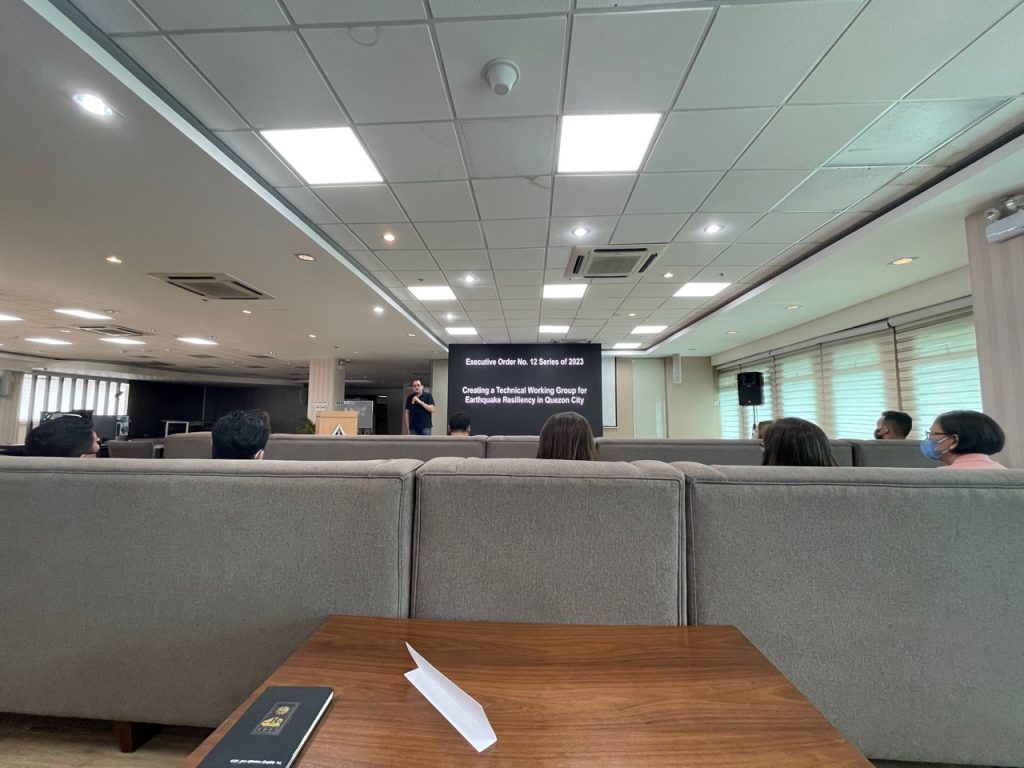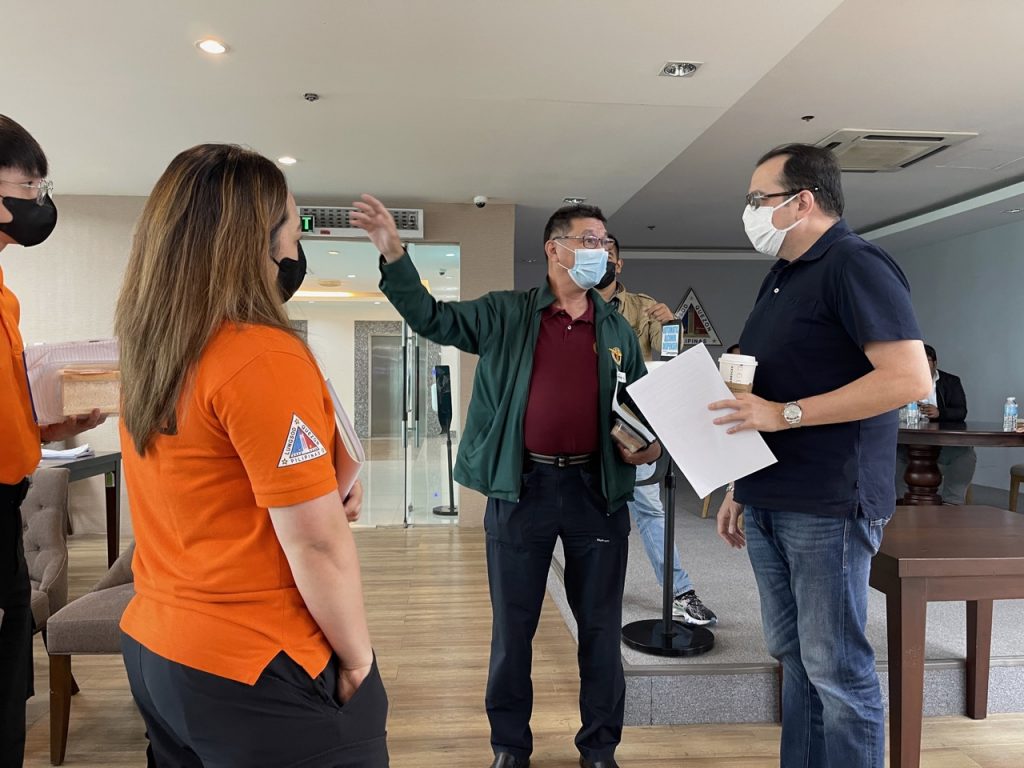The Quezon City Government created a Technical Working Group (TWG) for earthquake resilience which is tasked to create the policy framework and protocols, prepare for and respond to earthquakes, and establish immediate and long-term measures to reduce risks and vulnerabilities of communities (Executive Order No. 12, series of 2023).
The first meeting of the TWG was held on May 11, 2023 at the 15th Floor Main Building, City Hall Compound Quezon City. Mr. Ricardo T. Belmonte Jr., Secretary to the Mayor and Officer-in-charge of the Quezon City Disaster Risk Reduction and Management Office (QCDRRMO), chaired the meeting.
To set the mood of the meeting, Sec. Belmonte discussed the general background of the Executive Order which included the composition, mandate, functions, and the secretariat of the TWG for the city’s earthquake resilience. He also mentioned the occurrences of earthquakes and the possibility of the “Big One” occurring in the near future.

In line with this, he urged the members of the TWG to initiate projects or action plans, as well as, to craft possible policies, protocols, and guidelines that will help the City Government prepare for all natural hazards that may affect them in general.
In addition, Ms. Ashley Macalalad, the Senior Planning Officer of the QCDRRMO, discussed the initiatives of their office to preventing and mitigating the risks in the event of the ground shaking such as the conduct of regular infrastructure audits, the installment of earthquake sensors from the UP – iRISE Project, and the conduct and completion of CDRA.
As for preparedness measures, the QCDRRMO has conducted various capacity building activities for LDRRMO/Cs and BDRRMCs. In addition, they continue to revisit and update their DRR Plans. Further, they have mapped out open spaces, proposed MOAs with private sectors (e.g. Mercury Drug and supermarkets for stockpiling of food and non-food items), conducted information education programs (e.g. distribution of pamphlets to 142 barangays to promote disaster awareness), and participated in the quarterly Nationwide Simultaneous Earthquake Drill (NSED).
The QCDRRMO had also institutionalized their Incident Command System (ICS), and established hazard-specific Standard Operating Procedures (SOPs), Interoperability protocols for EOC, and Mobilization of Volunteers.
As to their recovery and rehabilitation initiatives, they have started initiatives on the Disaster Risk Insurance Pool Project (DRIPP) with GSIS and ADB, and have ongoing pre-disaster assessments. Further, they have started other programs to be included in their LDRRMP.

The meeting concluded with Sec. Belmonte urging the members of the TWG to bring ideas on the table with regard to earthquake resilience measures in their succeeding meetings.
The representatives from UP Resilience Institute (UP RI) who attended the meeting were Mr. Jose Abraham C. Ongkiko, Chief Science Research Specialist and Ms. Anjanette Mariano, Science Research Specialist II, both from the Institution Building Division.
